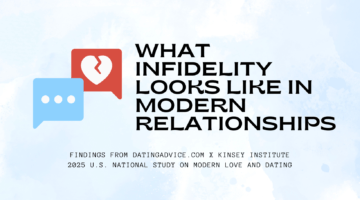4 Things Science Has Taught Us About Polyamorous Relationships
June 19, 2017 by Justin Lehmiller
During my teaching stint at Harvard a couple of years back, a few colleagues from out of state came to visit me on a lovely spring afternoon. I gave them a brief tour of campus, followed by some bar-hopping through Harvard Square. It was a memorable day for several reasons, but mainly because, over a few drinks at my favorite local dive bar, we laid the groundwork for one of the most ambitious research projects I’ve ever undertaken in my professional career. Specifically, we set out to conduct the largest and most comprehensive scientific investigation of polyamorous relationships to date.
We sought to do this for a few reasons. One is simply that there just isn’t much research out there on this topic—and, in the absence of scientific information, it’s all too easy for harmful myths, misconceptions, and stereotypes to proliferate. However, another important reason for studying polyamory is that there is a pervasive assumption of monogamy built into almost all scientific theories of relationships. The way scientists have attempted to understand commitment, jealousy, attachment, and so forth have all been predicated on the idea that everyone has—and ultimately desires—just one partner. Studying polyamory and other consensually non-monogamous relationships could therefore help us to significantly broaden and expand these theories.
We ultimately conducted a massive survey of more than 3,500 adults who identified as polyamorous (meaning they have multiple romantic partners/relationships at the same time). Our participants took a survey that, on average, required about an hour to complete in which they provided detailed information on their relationship experiences. Thus, not only do we have a huge sample, but an incredibly rich dataset!
The first paper stemming from this study was just published in the open-access journal PLOS ONE, which you can read and download a free copy of here. I recently wrote about this paper over at TONIC, too, focusing on four of the major takeaways from it. In brief, we found that polyamorous relationships…
1.) …continue to be highly stigmatized in modern society, despite the growth of positive media portrayals.
2.) …are extremely diverse in terms of the way that people structure their relationships.
3.) …consist of partners who don’t just buck traditional relationship labels, but also traditional notions of gender and sexuality.
4.) …offer diversified need fulfillment in the sense that each relationship carries its own unique benefits.
Check out the full article in TONIC for the details. And stay tuned to Sex and Psychology for updates on new papers that emerge from this study. Our second paper is currently under review and we have several more in the works that will explore a range of issues in polyamorous relationships, including attachment, jealousy and compersion, and commitment.
Want to learn more about Sex and Psychology ? Click here for previous articles or follow the blog on Facebook (facebook.com/psychologyofsex), Twitter (@JustinLehmiller), or Reddit (reddit.com/r/psychologyofsex) to receive updates.
Image Source: 123RF/Chris Curtis

Dr. Justin Lehmiller
Founder & Owner of Sex and PsychologyDr. Justin Lehmiller is a social psychologist and Research Fellow at The Kinsey Institute. He runs the Sex and Psychology blog and podcast and is author of the popular book Tell Me What You Want. Dr. Lehmiller is an award-winning educator, and a prolific researcher who has published more than 50 academic works.
Read full bio >


